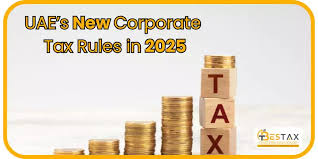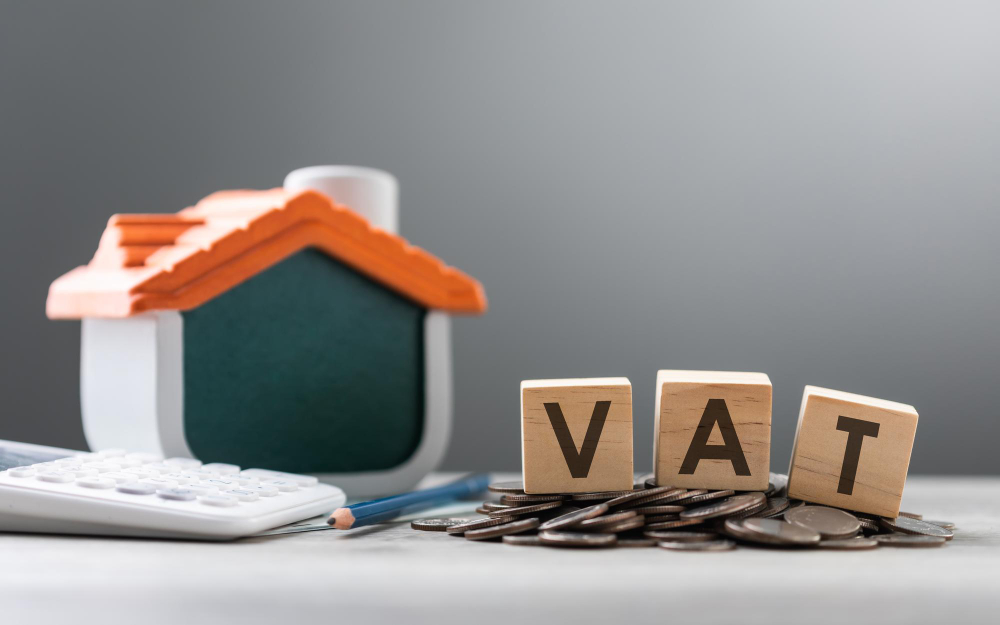Now Reading: Tax Residency Rules in the UAE: Criteria and Benefits for 2025
-
01
Tax Residency Rules in the UAE: Criteria and Benefits for 2025
Tax Residency Rules in the UAE: Criteria and Benefits for 2025

Table of Contents
Introduction
The UAE’s tax residency rules enable individuals and businesses to establish tax residency, benefiting from the absence of personal income tax, a low corporate tax rate, and Double Taxation Agreements (DTAs) with over 140 countries. Administered by the Federal Tax Authority (FTA) and aligned with international standards, these rules support the UAE’s position as a global business and investment hub. This guide details the criteria for tax residency, its benefits, and strategic considerations for individuals and businesses in 2025.

Tax Residency Criteria
1. Individuals
Under UAE Federal Decree-Law No. 47 of 2022 and related regulations, an individual is considered a tax resident in the UAE if they meet one of the following criteria:
- Physical Presence:
- Reside in the UAE for 183 days or more (continuous or non-continuous) within a 12-month period. Days spent in the UAE for any purpose (e.g., work, residence, travel) count toward this threshold.
- Permanent Place of Residence:
- Have a principal place of residence (e.g., owned or leased home) in the UAE and either:
- A center of financial and personal interests in the UAE (e.g., family, primary employment, or business activities), or
- Reside in the UAE for 90 days or more within a 12-month period.
- Have a principal place of residence (e.g., owned or leased home) in the UAE and either:
- Employment-Based Residency:
- Hold a valid UAE employment contract and reside in the UAE for 90 days or more within a 12-month period, with employment as the primary reason for presence.
- Exceptions:
- Temporary absences (e.g., holidays, medical treatment) do not interrupt residency status.
- Non-residents transiting through the UAE (e.g., airport layovers) are not counted toward residency days.
- Documentation: To obtain a Tax Residency Certificate (TRC), individuals must provide:
- Emirates ID.
- Passport with entry/exit stamps.
- Proof of residence (e.g., tenancy agreement, utility bills).
- Bank statements or employment contract (if applicable).
- Application via the FTA’s EmaraTax portal .
- Processing: TRC issuance takes approximately 5–10 working days, with a fee of AED 1,000–2,000 ($272–$545).
2. Businesses (Juridical Persons)

A business is considered a tax resident in the UAE if it meets one of the following criteria:
- Incorporation in the UAE: The entity is established, incorporated, or recognized under UAE law (e.g., mainland LLC, Free Zone company).
- Place of Management: The entity is effectively managed and controlled from the UAE (e.g., board meetings, key decision-making occur in the UAE).
- Free Zone Entities:
- Free Zone companies (e.g., in DIFC, JAFZA) are tax residents by default but must maintain adequate substance (e.g., physical office, employees, operational activities) to qualify for 0% corporate tax on qualifying income under the Qualifying Free Zone Person (QFZP) rules.
- Documentation for TRC:
- Commercial license or Free Zone registration.
- Articles of association.
- Audited financial statements.
- Proof of management activities (e.g., board meeting minutes).
- Application via the FTA’s EmaraTax portal.
- Processing: TRC issuance for businesses takes 10–20 working days, with fees varying by emirate (approximately AED 2,000–5,000).
Tax Benefits of UAE Tax Residency
1. No Personal Income Tax
- Description: The UAE does not impose personal income tax on salaries, freelance income, dividends, capital gains, or other personal earnings.
- Implication: Tax residents retain 100% of their income, unlike jurisdictions with income tax rates of 20–40% (e.g., UK, US). For example, a freelancer earning AED 500,000 ($136,000) pays no income tax in the UAE but could face $32,000–$40,000 in taxes elsewhere.
2. Corporate Tax Advantages

- Standard Rate: 9% corporate tax on taxable income above AED 375,000 ($102,000), with 0% on income below this threshold.
- Free Zone Benefits: QFZPs in Free Zones (e.g., DIFC, ADGM) enjoy 0% corporate tax on qualifying income (e.g., from overseas or Free Zone activities), provided they meet FTA criteria. Non-qualifying income (e.g., from mainland UAE) is taxed at 9%.
- Domestic Minimum Top-Up Tax (DMTT): From January 2025, multinational enterprises (MNEs) with global revenues exceeding €750 million face a 15% minimum tax on UAE profits under OECD Pillar Two, but SMEs and most Free Zone entities are unaffected.
- Implication: Businesses benefit from low or zero corporate tax, enhancing profitability compared to jurisdictions with 20–30% corporate tax rates (e.g., Germany, Canada).
3. Double Taxation Agreements (DTAs)
- Description: The UAE has over 140 DTAs with countries like the US, UK, Germany, and India, preventing double taxation on income earned by UAE tax residents.
- Benefits:
- Reduced withholding taxes on dividends, interest, and royalties earned abroad.
- Exemption from foreign taxes on UAE-sourced income for tax residents.
- Enhanced credibility for international business operations.
- Implication: A UAE tax resident earning dividends from a UK company may face 0% withholding tax under the UAE-UK DTA, compared to 15% for non-residents, saving significant costs.
4. No Capital Gains Tax
- Description: Profits from the sale of assets (e.g., real estate, shares, REITs) are not subject to capital gains tax in the UAE.
- Implication: Investors can realize gains tax-free, unlike jurisdictions with 15–30% capital gains tax (e.g., US, France). For example, selling a property for a AED 500,000 gain incurs no tax in the UAE.
5. VAT Considerations
- Description: Tax residents earning taxable supplies (e.g., commercial real estate income, freelance services) above AED 375,000 annually must register for 5% VAT. Input VAT on business expenses can be recovered.
- Implication: VAT compliance is required, but the 5% rate is lower than global averages (e.g., 20% in the UK), and input VAT recovery reduces costs.
6. Residency Visa Benefits
- Link to Tax Residency: Tax residency often aligns with UAE residency visas, obtainable through:
- Property Investment: AED 750,000 ($204,000) for a 2-year visa; AED 2 million ($545,000) for a 10-year Golden Visa.
- Employment or Business: Employment contracts or business ownership (e.g., Free Zone company) qualify for 2–10-year visas.
- Benefits: Access to UAE banking, healthcare, education, and lifestyle amenities, plus tax residency status for DTA benefits.
- Implication: Combining tax residency with a visa enhances financial and personal benefits, making the UAE a holistic investment destination.
Compliance Requirements
- Tax Residency Certificate (TRC):
- Apply via the FTA’s EmaraTax portal with required documents.
- Required for claiming DTA benefits or proving tax residency to foreign authorities.
- Corporate Tax Registration:
- Businesses with taxable income above AED 375,000 or revenue above AED 1 million (for freelancers/sole proprietors) must register with the FTA by March 31, 2025, or face a AED 10,000 penalty.
- File tax returns within nine months of the fiscal year-end (e.g., September 30, 2025, for a December 31, 2024, year-end).
- VAT Registration:
- Mandatory for taxable supplies above AED 375,000; voluntary above AED 187,500 to recover input VAT.
- File quarterly VAT returns and maintain records for five years.
- eInvoicing: Prepare for the proposed eInvoicing system (consultation open until February 27, 2025) for real-time transaction reporting.
- UBO Disclosure: Businesses must update Ultimate Beneficial Owner information regularly with the FTA.
Strategic Actions for Tax Residency
- Meet Residency Criteria: Ensure 183 days of physical presence or establish a principal residence/employment in the UAE to qualify for tax residency.
- Obtain a TRC: Apply for a TRC to access DTA benefits and prove tax residency to foreign tax authorities.
- Leverage Free Zones: Establish businesses in Free Zones (e.g., DIFC, JAFZA) to benefit from 0% corporate tax on qualifying income, ensuring compliance with QFZP rules.
- Invest in Property: Purchase property (AED 750,000–2 million) to secure residency visas, enhancing tax residency and lifestyle benefits.
- Comply with Tax Obligations: Register for corporate tax and VAT if thresholds are met, using accounting software (e.g., QuickBooks) for compliance.
- Optimize DTAs: Structure income (e.g., dividends, royalties) to leverage DTAs, reducing foreign tax liabilities.
- Engage Tax Advisors: Consult professionals (e.g., PwC, CLA Emirates) to navigate FTA requirements, DTAs, and home country tax implications.
- Monitor Regulatory Changes: Stay updated via the FTA for changes in tax residency or eInvoicing rules.
Comparative Advantage
The UAE’s tax residency offers significant advantages:
- No Personal Income Tax: Unlike the US (24–37% federal tax) or UK (20–45%), UAE residents retain all personal income.
- Low Corporate Tax: 9% (or 0% for QFZPs) vs. 21–30% in major economies.
- DTA Network: Over 140 DTAs provide greater tax relief than jurisdictions with fewer treaties (e.g., Singapore with ~90).
- Lifestyle Benefits: Residency visas offer access to world-class infrastructure, unlike tax havens with limited residency perks.
Challenges and Considerations
- Compliance Burden: VAT and corporate tax registration, plus eInvoicing, require robust systems and expertise.
- Home Country Taxes: Non-residents must check foreign tax obligations, as some countries tax worldwide income despite UAE residency.
- Substance Requirements: Free Zone businesses must demonstrate adequate substance to maintain QFZP status, avoiding 9% tax on non-qualifying income.
- DMTT for MNEs: Large MNEs face a 15% minimum tax, requiring global tax planning.
Conclusion
In 2025, UAE tax residency offers individuals and businesses a tax-efficient environment with no personal income tax, low corporate tax, and extensive DTA benefits. By meeting residency criteria, obtaining a TRC, and leveraging Free Zones or property investments, stakeholders can maximize financial and lifestyle advantages. Compliance with FTA regulations and proactive planning are essential to fully capitalize on these benefits. For detailed guidance, visit the FTA’s EmaraTax portal or consult tax professionals like PwC or CLA Emirates.
WATCH MORE: https://www.youtube.com/watch?v=O7jKPF6x4kk
READ MORE: Navigating VAT in UAE Real Estate Transactions: A 2025 Overview



















